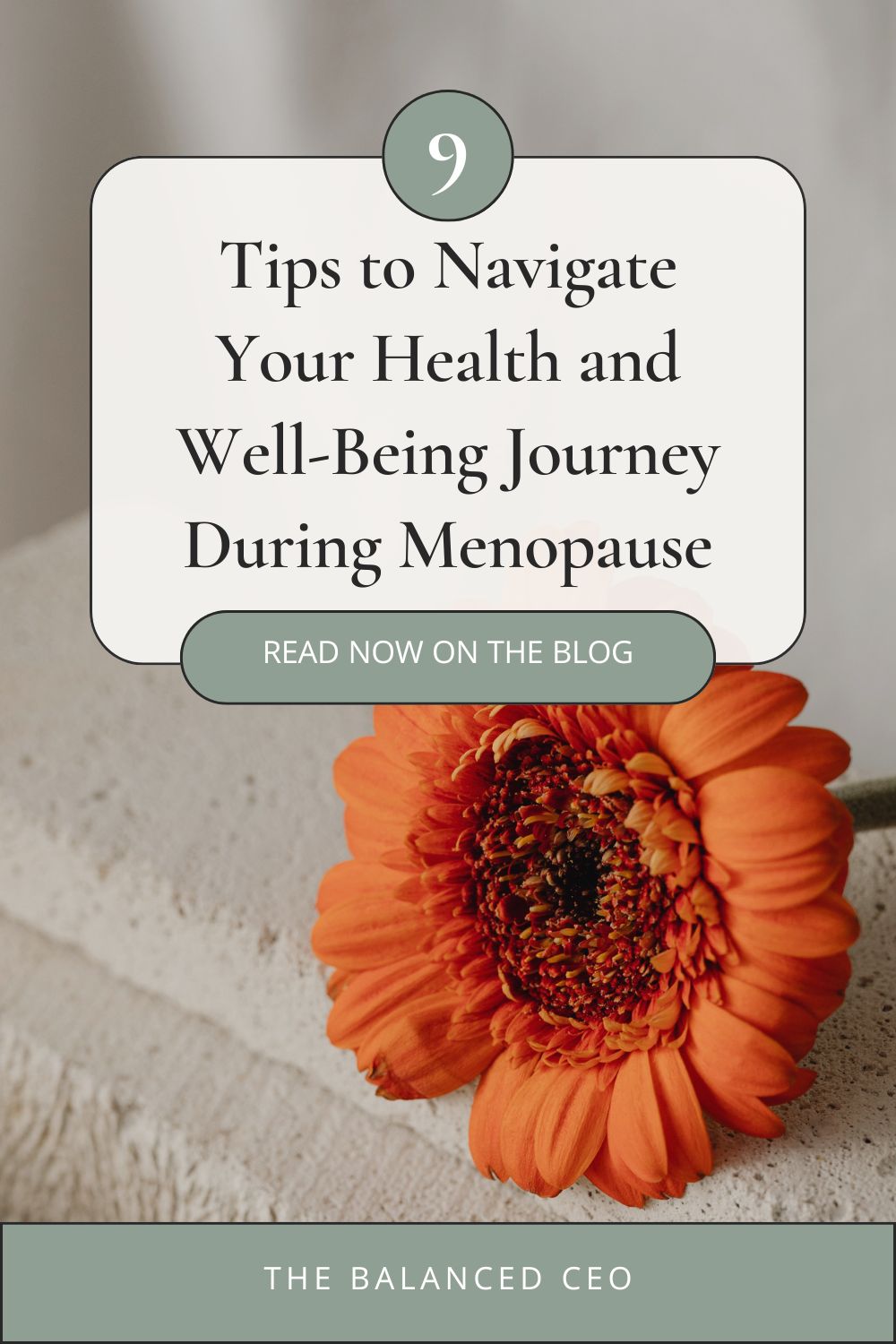This post may contain affiliate links, which means I’ll receive a commission if you purchase through my links, at no extra cost to you. Please read full disclosure for more information.

Sometimes, there are journeys without destinations, and health is one of them. It’s about becoming healthy and staying healthy indefinitely. But even when it comes to navigating this health journey, it can still be challenging! Obstacles will always get in the way, making focusing on your health challenging.
For example, when it comes to the holiday season, everyone is incredibly busy with work, social things, preparing, and celebrating the holidays. All of this can truly make it hard to have a wellness journey! This is just an example, but sometimes, these obstacles can last a long time, and sometimes, they’re completely natural and a part of life, like menopause.
While it’s a normal part of aging, the changes it brings can affect your physical and emotional health. But it doesn’t necessarily mean that menopause has to be a disruptive experience on your health journey.
Again, it’s a natural and normal part of aging. So, with that said, there are ways to still focus on staying healthy and feeling vibrant, so here’s exactly what you need to know to maintain your quality of life during this transition.
Understand the Hormonal Changes
The first step in navigating menopause healthily is to understand the changes happening in your body. You’ll have to read up on it or even watch videos about it. You might question what is and what isn’t normal, and all of these changes to your body will be incredibly stressful. It’s going to help massively. Just knowing what to expect can help you manage these changes more effectively.
You’ll Need a Balanced Diet
Eating a healthy diet is crucial during menopause- well, technically, it’s always crucial. But be sure to focus on incorporating a variety of foods rich in essential nutrients. So this means that you might need to increase your intake of fruits, vegetables, and whole grains. If you’re already eating healthy, just see what vitamins and minerals you can incorporate more into your diet since your body will be going through changes.
Keep Hydrated
All right, so anyone who’s focusing on their health already knows this, but you need to focus even more on it! Why? Well, you have to keep in mind that decreased estrogen levels during menopause can lead to dryness, particularly affecting the skin and vaginal tissues.
So, one of the best ways to alleviate these types of symptoms is to focus more on staying hydrated. It also helps with digestion and maintaining healthy skin (and these do get impacted during the menopause changes).
Explore Hormone Therapy Options
For some women, the symptoms of menopause can be significantly disruptive, and natural supplements or lifestyle changes might not be enough. While yes menopause is natural, this obstacle massively impacts you staying healthy- both physically and mentally. In these cases, exploring hormone therapy options can be beneficial.
One of the best examples out there would be bioidentical hormones, which are designed to mimic the natural hormones produced by the body and can be an effective treatment for balancing hormone levels and alleviating menopause symptoms. So this might just be a solid option for you. Explore comprehensive insights on the benefits and uses of bioidentical hormones for both men and women with your healthcare provider. They’ll be able to let you know whether this is a suitable option for you.
Work On Stress-Management
Needless to say, menopause is an incredibly stressful time in one’s life! There’s no doubt about that whatsoever! This is all due to the hormonal changes and the adjustment to a new stage of life. It doesn’t help that there are societal expectations and labels, too. This is exactly why you need to focus on your stress and how to decompress it specifically.
Look into managing stress through relaxation techniques such as yoga, meditation, or deep-breathing exercises. It’s also going to really help to just focus on maintaining social connections and taking time for hobbies and activities you enjoy, which can also help manage stress.
You Need to Keep Active
Speaking of stress management, you should also focus on exercise—one of the best ways to manage stress during these uncomfortably tough transitions. Exercise also boosts your mood and energy levels, helping to combat the fatigue and mood swings associated with menopause.
Make Sure to Get Enough Sleep
The time during menopause can be excruciatingly exhausting, and sleep disturbances are super common during this period, too, often exacerbated by night sweats. By all means, try to do what you can to prioritize good sleep hygiene. So this might be done by maintaining a regular sleep schedule, creating a comfortable sleep environment, and avoiding stimulants like caffeine and electronic devices before bedtime. But of course, if you’re still struggling to get enough sleep, talk to your doctor about this.
Regular Check-Ups
Speaking of doctors, this is a period in your life when you might have to see them a little more than usual. You can count on your doctor or other healthcare provider to offer some advice on managing symptoms and conduct screenings for conditions like breast cancer and cardiovascular disease, whose risks increase after menopause. Honestly, don’t skip this; you need to see them. You never know what potential problems could arise during menopause, so this can be a form of preventative care.
This dentist in Irvine CA also adds that dental health is particularly important for menopausal women due to the hormonal changes that can affect oral health. These changes can lead to a decrease in saliva production, increasing the risk of dry mouth, gum disease, and tooth decay. Additionally, reduced estrogen levels can contribute to bone loss, including the bones that support the teeth, making menopausal women more susceptible to periodontal disease. Maintaining good dental hygiene and regular dental check-ups can help mitigate these risks and ensure overall oral health during this life stage.
Don’t Forget About Mental Health
Just like what was stated, menopause is incredibly stressful. Menopause can be a rollercoaster, not just physically but also emotionally. As you’ve already guessed, it’s due to the hormones; these hormonal fluctuations may contribute to mood swings, anxiety, and even depression.
You’re completely valid for feeling how you’re feeling; this truly can be a tough period in your life, so give yourself a chance to feel this, monitor this, and take action! Talking therapies, counseling, or joining a support group where you can share experiences and coping strategies with other women going through similar changes can be incredibly beneficial. While this might be a common part of life, this doesn’t mean that you need to feel as if you’re alone when going through this.





Leave a Reply